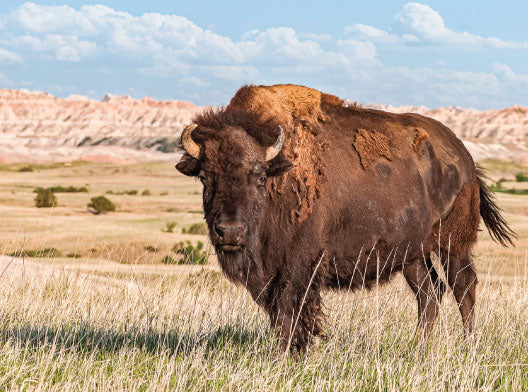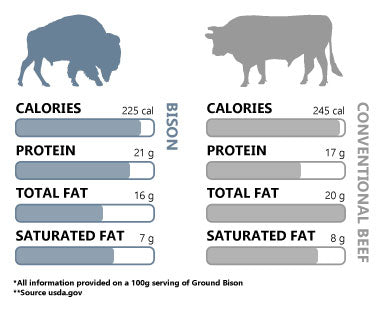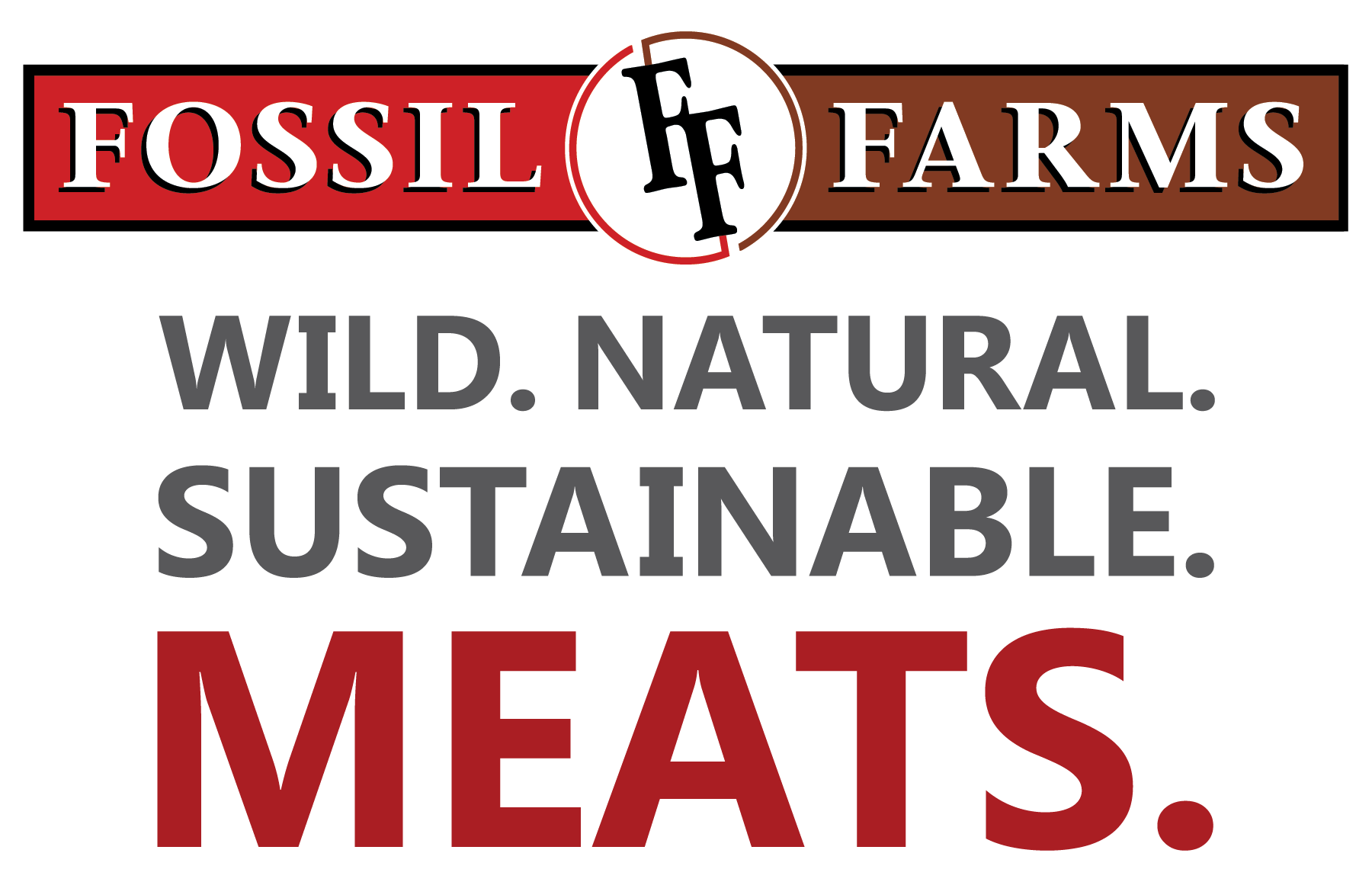
Bison is the heaviest land animal in North America that once migrated in large herds across the continental United States. By the 19th century, Bison was on the brink of extinction due to commercial hunting and contracting diseases from free range domestic cattle that nearly wiped out the population. In 1889, there were only 541 Bison left in wild, however, thanks to the conservation efforts of the National Park Service, the population of Bison living in the wild is now roughly 31,000.
Often mistaken for Buffalo, Bison are recognized as an enigmatic symbol of the Great Plains, as it is within this region of the country where they primarily range free. And, in 2016, former President Barack Obama designated Bison as the official mammal of the United States.
On Sustainability:
It is also generally accepted that raising Bison is more sustainable for the environment than raising beef cattle. This is due to the fact that Bison produce less greenhouse gases than cattle and keep their ecosystem in check by grazing in open pastures. According to an article from Modernfarmer.com, “[Bison] are more in tune with nature, more balanced in their impact than cattle.” Adopting large-scale Bison ranching could provide environmental benefits for the U.S., relative to traditional cattle farming. An article on FoodPrint.org went on to say, “Expanding Bison ranching could help to lower the environmental impacts of the U.S. food industry,” which is part of Fossil Farms’ mission. “Choosing pasture-raised, ethically sourced Bison meat is key to supporting this vision.”
On Nutrition:
It is generally accepted that Bison is a healthier red meat alternative to traditional beef. A 100 gram portion of ground Bison contains 225 calories, 21 grams of protein, 16 grams of total fat and 7 grams of saturated fat. The same portion of traditional beef contains 245 calories, 17 grams of protein, 20 grams of total fat and 8 grams of saturated fat. Bison is also a rich source of B vitamins, like B12, B6, and niacin (B3), high in iron, selenium and zinc and fairly low in calories. In addition to being a healthy red meat alternative, Bison can be easily substituted for beef in many of your favorite recipes!

Fossil Farms' Bison:
Fossil Farms’ North American Bison, raised in Colorado and Eastern Canada, is regarded as the best by chefs and industry professionals nationwide. Part of the “Never Ever Program,” our Bison are never administered antibiotics, steroids or hormones. Considered a “gateway game meat,” perfect for the first timer, our pasture raised Bison are occasionally grain finished for a truly superior taste. This tender red meat is similar to Beef in color but has a slightly sweeter flavor. Bison is recommended by health and fitness professionals as a lean and healthy protein alternative to beef.
Fun Facts:
> Bison are the largest mammal in North America, standing from 5-6 feet tall and weighing over a ton.
> Bison were fundamental to the diet of Native Americans across North America. Many of the tribes the consumed Bison considered to be sacred and utilized every part of the animal. Beyond consuming the meat, their bones were used to make hand carved utensils and tools, and their hides for clothing and shelter.

Share:
Change the Steaks
Read up on Venison